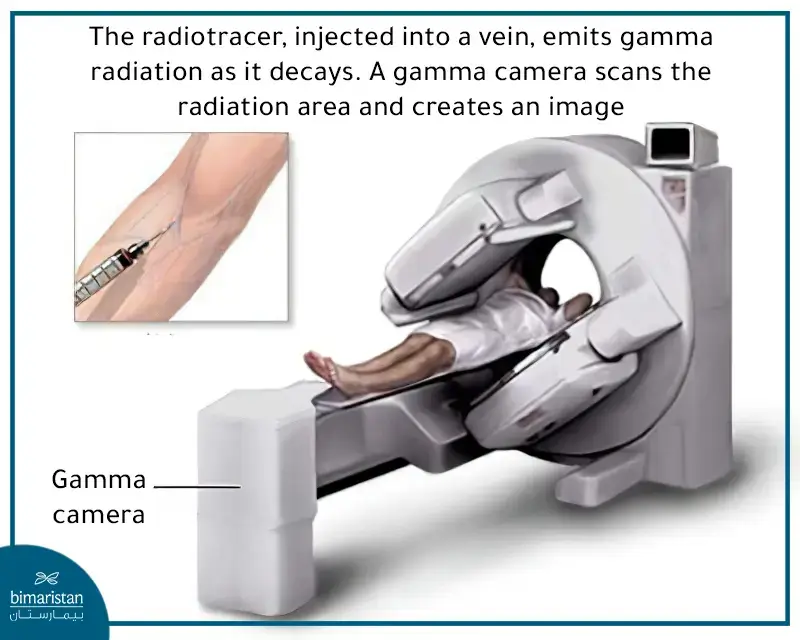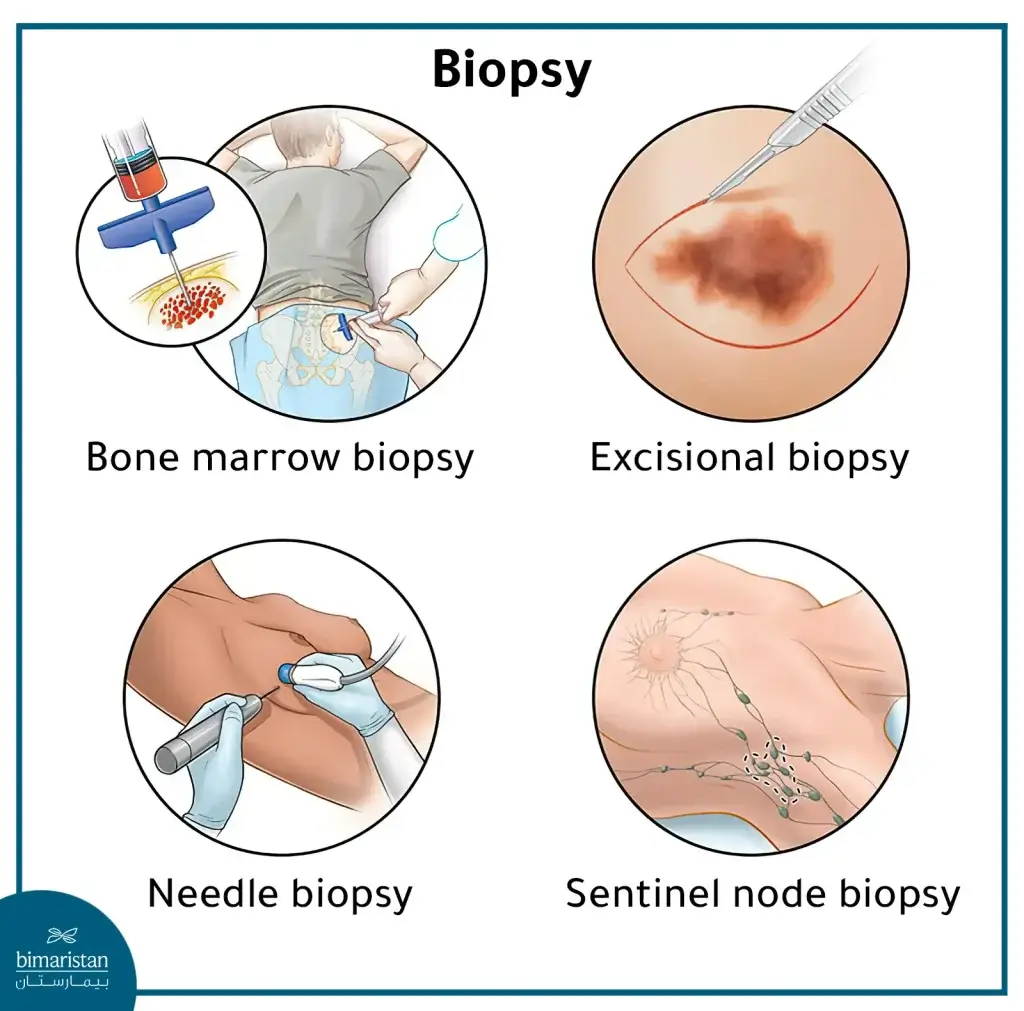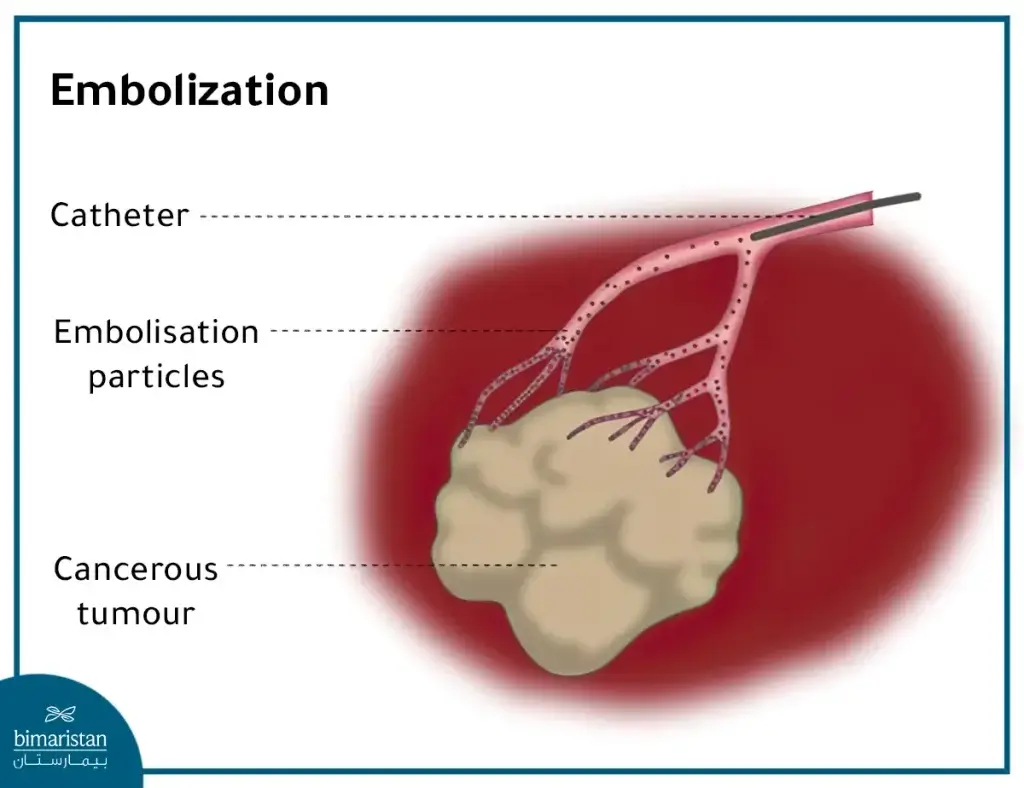
Oncology
Cancer is a significant health concern and the second most common cause of death after cardiovascular diseases. Therefore, cancer research in Turkey has focused on developing new methods for early diagnosis. This allows for detecting cancers earlier when they are more treatable. This research includes monitoring tumor markers and using the latest technologies, such as identifying predictive factors that can help forecast a patient’s response to specific treatments and studying genetic mutations, biomarkers, and immune markers associated with treatment outcomes and patient survival.
Cancer research centers in Turkey concentrate on developing integrative treatments that combine different therapeutic methods, such as chemotherapy, radiation therapy, surgery, targeted therapy, and immunotherapy. This approach allows for more effective and comprehensive tumor treatment, increasing the chances of complete recovery in the long term.
Cancer Diagnosis Methods in Turkey
With the significant scientific advancements in Turkey in the medical field and artificial intelligence, new opportunities arise to analyze large amounts of data and process medical images to achieve accurate patient diagnoses.
The diagnostic method varies depending on the type of cancer and the affected organ, but most diagnosis methods can be summarized as follows:
Physical Examination
Doctors typically conduct a physical examination during routine check-ups in clinics or hospitals. This involves looking for any changes, such as unusual lumps or new sensations that bother the patient.
Laboratory Tests
Elevated or lowered levels of certain substances in the body can be a sign of cancer. Therefore, laboratory tests of blood, urine, and other body fluids that measure these substances can help doctors diagnose cancer. However, abnormal lab results are not a definite sign of cancer. Lab test results are used with other test results, such as biopsies and imaging, to help diagnose a person’s cancer and learn more about it. These tests include:
- Blood Chemistry Analysis
- Complete Blood Count (CBC)
- Cytogenetic Analysis
- Flow Cytometry or Immunophenotyping
- Liquid Biopsy
- Sputum Examination
- Tumor Markers
- Urine Analysis
- Urine Cytology
It is possible to have normal results in many tests, even if you have cancer. Abnormal test results are also possible, even if you are healthy. Therefore, lab tests alone cannot definitively confirm whether you have cancer.
Imaging Tests
Imaging tests create pictures of areas inside the body that help the doctor see if there is a tumor. These pictures can be made in several ways:
CT Scan (Computed Tomography)
CT uses an X-ray machine linked to a computer to take detailed pictures of your organs from different angles. These pictures are used to create three-dimensional images of the inside of the body.
Sometimes, a patient may receive a dye or another contrast material before the scan, either orally or via an intravenous needle. Contrast materials help highlight specific areas in the body, making the images easier to read.
MRI (Magnetic Resonance Imaging)
MRI uses a strong magnet and radio waves to take detailed cross-sectional images of the body. These slices are combined to create detailed images of the inside of the body, which can show where tumors may be present.
When undergoing an MRI scan, the patient lies still on a table that slides into a long tube surrounding part or all of the body. The MRI machine produces loud and rhythmic pulses.
Sometimes, a special dye may be injected into a vein before or during the MRI scan, making the tumors appear brighter in the images.
Nuclear Scan
Nuclear scans use radioactive materials to create images of the inside of the body. This type of scan may also be called a radionuclide scan.
Before the scan, the patient receives an injection of a small amount of radioactive material called a tracer. The tracer travels through the blood and collects in the bones or specific organs.
After the scan, the radioactive material in the body gradually loses its radioactivity over time and may also leave the body through urine or stool.

Bone Scan
Bone scans are nuclear scans that check for abnormal areas or bone damage. They can be used to diagnose bone cancer or see if it has spread to the bones from other body parts (called bone metastases).
Before this test, a small amount of radioactive material is injected into a vein. As it travels through the blood, it collects in abnormal areas in the bone. These areas appear as “hot spots” on the images taken by a special scanner.
PET Scan (Positron Emission Tomography)
PET scans are nuclear scans that create detailed three-dimensional images of areas inside the body based on their glucose uptake. Since cancerous cells often consume more glucose than healthy cells, the images can be used to find cancer in the body.
Before the scan, the patient receives an injection of a radioactive glucose tracer. During the scan, the patient remains on a table that moves back and forth through the scanner.
Ultrasound
Ultrasound uses high-energy sound waves that are not audible to humans. The sound waves create echoes of the tissues inside the body. A computer uses these echoes to create images of areas inside the body, called sonograms.
During an ultrasound exam, the patient lies on a table. At the same time, a technician slowly moves a device called a transducer (which emits high-energy sound waves) over the skin above the area being examined. The transducer is covered with a warm gel to help it glide over the skin.
X-rays
X-rays use low doses of radiation to create images of the inside of the body. An X-ray technician positions the patient and directs the X-rays to the part of the body being imaged. During image capture, the patient needs to stay very still and may need to hold their breath for a second or two.
Biopsy
Doctors need to perform a biopsy to confirm cancer. A biopsy is a procedure in which the doctor removes a sample of abnormal tissue, which a pathologist then examines under a microscope and conducts other tests on the cells in the sample. The results are described in a pathology report containing details about the diagnosis. This information helps clarify the available treatment options.
A biopsy sample can be obtained in several ways:
- Needle: The doctor uses a needle to remove tissue or fluid. This method is used for bone marrow exams, spinal taps, and some breast, prostate, and liver biopsies.
- Endoscopy: The doctor inserts a thin, lit tube called an endoscope through the mouth or rectum. The doctor can remove some or all abnormal tissue through the endoscope (such as during a colonoscopy or bronchoscopy).
- During surgery: The surgeon removes an area of abnormal cells during an operation. The surgery may be excisional (removing the entire tumor) or incisional (removing part of the tumor).

Treatment and surgery for Oncology in Turkey
Some types of cancer can be treated with a single method, while others are more effectively combated with a combination of treatments. Treatments can include surgical and non-surgical methods:
Chemotherapy
Chemotherapy is a non-surgical infusion-based treatment that uses powerful drugs to kill fast-growing cancerous cells.
Radiation Therapy
Radiation therapy is an advanced, non-surgical cancer treatment that uses high-energy X-rays to destroy cancer cells. This type of therapy works well when used alongside surgery and chemotherapy.
Interventional Radiology for Cancer Treatment
Interventional oncology treatments can be used if the cancer cannot be surgically removed or effectively treated with other therapies. Some interventional oncology procedures in Turkey include:
- Complex Biopsies
- Cryoablation
- Transarterial Chemoembolization (TACE)
- Radiofrequency Ablation (RFA)
- Tumor Embolization, such as Chemoembolization and Yttrium-90 (Y-90) Radioembolization

Immunotherapy
Immunotherapy is a non-surgical treatment that uses the patient’s immune system to detect and combat cancer. It can be used as a primary treatment or in combination with other treatments (such as chemotherapy and radiation therapy). This treatment can significantly shrink tumors, reduce some side effects, and help control cancer over time.
Surgical Oncology
One of the options for treatment can be the surgical removal of the tumor. There are numerous surgical techniques, such as minimally invasive, open, laparoscopic, and robotic. These surgeries include:
- Gastrointestinal Surgery
- Gynecologic and Pelvic Surgery
- Cardiovascular Surgery
- Lung and Thoracic Surgery
- Neurosurgery
- Urological Surgery
Signs of Cancer Recovery
The most important sign is the partial response to treatment. Partial response means the tumor has shrunk by at least 50% but is still present, while complete response or complete remission means no detectable cancer remains in any tests. This often, but not always, means the patient has been cured of the disease, but they may still have a very small cancer that cannot be detected by tests.
Generally, there are no specific signs for all types, but recovery status can be monitored using the same methods used to diagnose cancer:
- Physical Examination
- Laboratory Tests
- Various Imaging Tests, as mentioned earlier
- Biopsy
Psychological and Nutritional Care for Cancer Patients
Maintaining proper nutrition and psychological well-being before, during, and after treatment is vital.
It is natural to need some additional psychological support when diagnosed with cancer. Studies show that people with cancer who receive social support have a better quality of life. However, many people who could benefit from support services do not use them because they are unaware of them or do not know how to find them. Psychological support can be obtained in several ways:
Cancer Patient Support Groups
Support groups bring together people in similar situations. In these groups, individuals can share their concerns and learn how others cope. Support groups can help individuals deal with their feelings and the side effects of treatment. Members can also help each other make decisions by sharing what they have learned. Support groups can also help individuals cope with family issues associated with the illness.
Individual Counseling
Individual counseling might be a good option if your emotions are preventing you from doing your normal activities. In counseling, you can talk with a trained professional about your concerns. Having cancer or having a family member with it is a unique experience for each person. Individual counseling allows you to focus on your feelings and concerns.
Medical opinions vary on the critical importance of diet during treatment. Still, it is agreed that regardless of the diet followed, the main goal is to maintain a stable weight to minimize weight changes and preserve energy for dealing with all the new challenges that treatment might bring. You should try to eat a wide range of high-calorie and high-protein foods. Even if you do not feel well or do not feel like eating, proper nutrition can be important during treatment.
Renowned Cancer Doctors in Turkey
Turkey boasts a selection of top doctors across various specialties for treatment, including:
- Dr. Şamil Aliyev
- Prof. Dr. Mustafa Oygar Kalayci
- Prof. Dr. Namık Yaşar Özbek
Leading Cancer Treatment Centers in Turkey
Some of the best cancer treatment centers in Turkey include:
- Ahi Evran Hospital
- Memorial Bahçelievler Hospital
- Ümraniye Training and Research Hospital
- Ankara Oncology Hospital
Cost of Cancer Treatment in Turkey
The costs of treatments start from $1,000 and vary widely depending on the specific procedure or set of procedures required, as well as the type, stage, and location of the cancer.
The main goal remains early detection and effective cancer treatment, which increases the chances of recovery and improves patients’ quality of life. Thanks to these efforts, Turkey continues to make remarkable progress in oncology, making it one of the most important countries in providing integrated and comprehensive health care for patients.